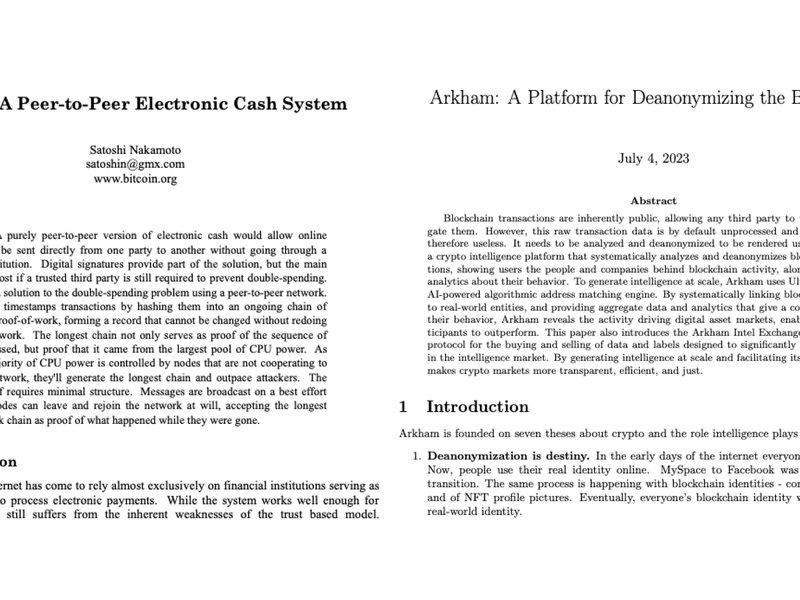Depending on your perspective, this week brought a double dose of black pills for those who held out hope of salvaging cryptocurrency users’ privacy – or white pills for those seeking greater transparency for a $1 trillion market.
First, Arkham Intelligence, a on-chain data analytics provider, opened an intel bounty marketplace with the express purpose of unmasking the owners of crypto wallets.
This is an excerpt from The Node newsletter, a daily roundup of the most pivotal crypto news on CoinDesk and beyond. You can subscribe to get the full newsletter here.
“Deanonymization is destiny,” the company declared in a “white paper” (really a marketing brochure, printed in the same academic-looking font and layout as Satoshi Nakamoto’s original proposal for anonymous digital cash). “Eventually, everyone’s blockchain identity will be linked to their real-world identity.” (Emphasis mine.)
Descriptively and directionally, Arkham may be correct – but its project of accelerating that outcome understandably rubbed privacy advocates the wrong way. The subsequent revelation that Arkham had inadvertently leaked its customers’ personal data offered comic relief.
Blockchains are one kind of fishbowl; regulated exchanges are another. The Arkham kerfuffle was followed by an illuminating report about asset management giant BlackRock’s proposed spotbitcoin exchangetraded fund (ETF) from CoinDesk’s Ian Allison. He learned of an information-sharing agreement between BlackRock’s partners, the Nasdaq (which plans to list the ETF’s shares) and crypto exchange Coinbase. The arrangement would go further than surveillance-sharing agreements (SSAs) in previous bitcoin ETF applications. Rather than Coinbase just pushing trade data to regulators, to BlackRock and to the Nasdaq, the latter parties would be allowed to pull data from the crypto exchange, “up to and including personally identifiable information (PII), such as the customer’s name and address.”
To be fair, there’s a reason the U.S. Securities and Exchange Commission (SEC) asks ETF applicants to obtain SSAs with regulated markets for the underlying assets, and it’s not some covert ambition to become another NSA. The regulator aims to deter market manipulation.
Arkham’s intel exchange might serve a similarly salubrious…
Click Here to Read the Full Original Article at Cryptocurrencies Feed…
























